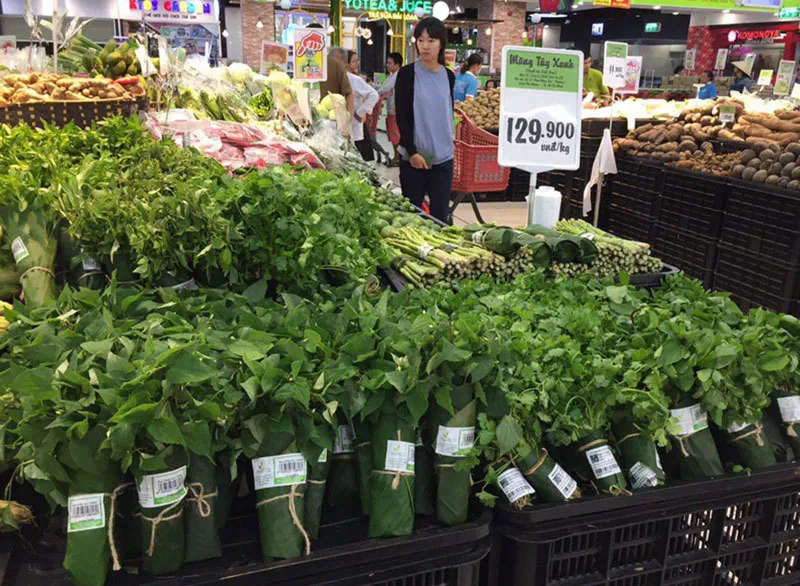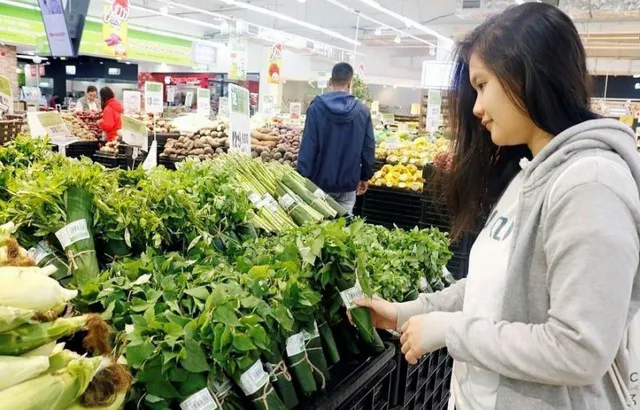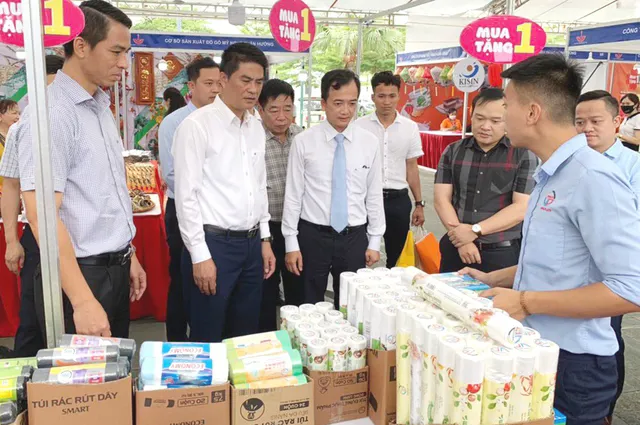Hanoi says no to single-use plastic bags
Environmentally friendly alternatives will replace disposable plastic bags.
"Banning single-use plastics will certainly be disruptive, but nothing can disrupt the human ability to adapt."
Dang Quoc Trong, 44, a local teacher in Hanoi's Nam Tu Liem district, told The Hanoi Times he agrees with Hanoi's plan to phase out single-use plastic bags by the end of 2024.
Trong said a sticky rice stall outside a secondary school near his home sells up to 200 servings in a single morning, and "everything they use is made of disposable plastic, from the container to the spoon to the plastic bag used to carry it."
"About 200 plastic bags, spoons, and containers go into the trash every morning. I am talking about a single breakfast stall in an ordinary school. Imagine how many stalls there are in a city or country. Plastic waste can now be found in every corner of the world. Everyone can see the damage it does to the environment," Trong said nervously.
"In big cities like Hanoi, as long as we do not have good enough solutions to deal with plastic waste, we should move forward with a ban on such products. Banning single-use plastics will certainly be disruptive, but nothing can disrupt the human ability to adapt," he added.
"We can still enjoy our sticky rice breakfasts wrapped in banana leaves, something we did for years before the advent of plastic. Who needs plastic straws when there are bamboo alternatives? At the very least, each of us can do our part by simply using less single-use plastic. We can use recyclables or opt for a cloth bag when we go to the supermarket," Trong suggested.
Vegetables wrapped in banana leaves instead of plastic bags at the Big C supermarket in Hanoi. Photo: Hoai Nam/The Hanoi Times |
Such an expectation is in line with the city's plan. Hanoi has set a target for all supermarkets and 60-70% of the city's wet markets to stop using single-use plastic bags by the end of 2024 in an effort to change people's habits and raise their awareness of environmental protection, according to a plan just released by the municipal People's Committee.
The plan aims to realize the National Sustainable Production and Consumption Program by 2025, which emphasizes raising awareness and strengthening the social responsibility of individuals and organizations for sustainable production and consumption. Under the new plan, all single-use plastic bags commonly used for packaging will be replaced with eco-friendly alternatives.
According to Nguyen Minh Tan, Deputy Director of Hanoi's Department of Natural Resources and Environment, Vietnam has issued many legal documents on the issue, recognizing plastic waste's serious risks to the environment.
"The country aims to have all shopping malls and supermarkets using eco-friendly bags by 2025. The project's communication activities have been widely rolled out in various forms, urging customers to reduce the amount of plastic bags they use," Tan talked to The Hanoi Times.
Citing a survey by the Ministry of Natural Resources and Environment, Tan said supermarkets in Hanoi use an average of 104,000 single-use plastic bags a day, or 38 million bags a year. Of the 48 supermarkets surveyed, 46 offer free plastic bags, resulting in each supermarket distributing more than 1,400 nylon bags per day.
"The city government has intensified communication among retailers to change consumers' mindset towards moderating the use of single-use plastic bags and plastic products. However, single-use plastic bags are still popular at the moment," Tan added.
Many supermarkets in Hanoi have committed to using banana leaves to wrap goods instead of plastic bags. Photo: VGP |
Nguyen Trong Tuan, general director of WinMart Supermarket System, told The Hanoi Times that his group is gradually creating a single-use plastic bag-free community by promoting the habit of rejecting and minimizing the use of these bags.
"We plan to set up a counter just for customers who say no to plastic bags, improve the packaging process at the checkout counter to reduce the average number of bags per transaction from five to three, display eco-bags in areas where there is demand, and offer free eco-bags to customers with a bill of more than VND300,000 (US$12)," Tuan said.
He added that his group will launch some initiatives to discourage the use of single-use plastic bags, such as the "one day without using plastic bags" campaign, and customers who choose not to use plastic bags will also receive discounts or refunds.
"We hope these activities will help reduce the number of plastic bags in Hanoi and throughout the country," Tuan said.
In recent years, many retailers, such as WinCommerce and BRG Retail, have offered free eco-bags to customers, contributing to the national goal of banning single-use plastic bags in supermarkets and shopping malls by 2025.
Nguyen Thi Anh Phuong, 39, a resident of Cau Giay District, told The Hanoi Times that she often brings a bamboo and rattan basket with her when she goes to the market, saying, "I use this basket to store food, vegetables, and fruits. I try to minimize the use of plastic bags because they are harmful to our living environment."
Biodegradable eco-bags are promoted at a fair organized by the Hanoi Department of Industry and Trade. Photo: VGP |
She went on to say that when buying ready-to-eat food, she prefers glass containers to plastic boxes or bags because they are better for the environment and her health.
"When I order drinks online, I choose the stores that use eco-friendly or reusable utensils like paper cups or bamboo straws," Phuong said.
Tran Dinh Diep, owner of a grocery store on Ho Tung Mau Street in Nam Tu Liem District, said more people are using reusable boxes and bags to store their goods. "I am very happy to see this action by my customers, which saves money and contributes to environmental protection," Diep told The Hanoi Times.














